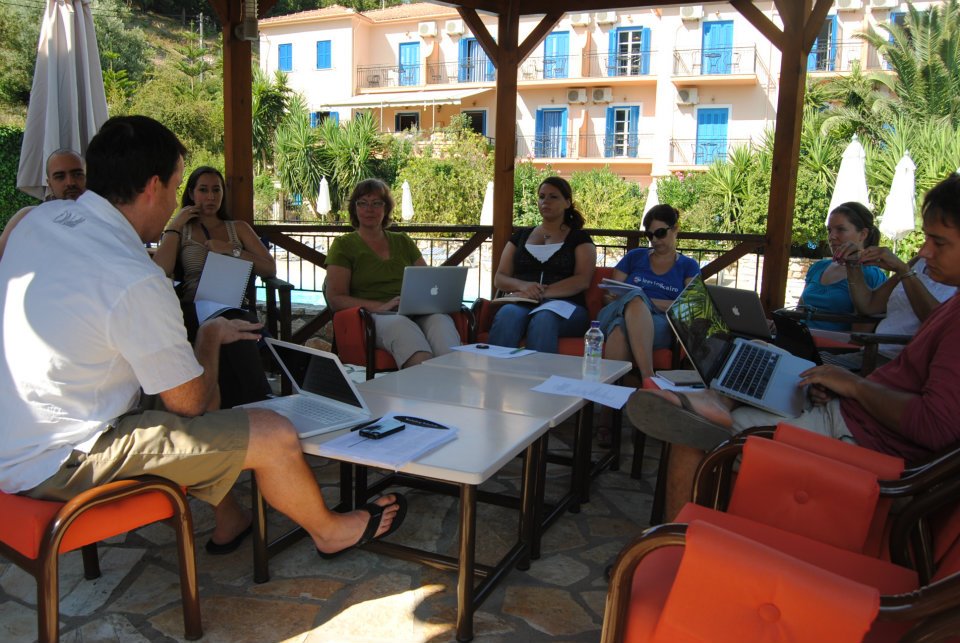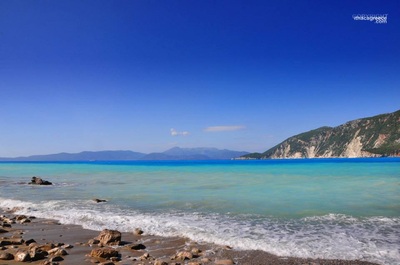Debbie Young on the value of writers' retreats, where authors have the opportunity to become fully immersed in their writing.

Reputable employers offer their workforce career development (or “training” as we used to call it!) But writers are their own bosses, and so we must provide our own education programmes, if we’re to remain fresh, productive and motivated.
To my mind, no training opportunity for writers is as stimulating or productive as attending a residential writers’ retreat. This is partly because a retreat allows us to escape completely from our normal routine and surroundings and to concentrate instead upon our craft.
No matter how many writing guides we pore over at home, no matter how many local litfests and writing groups we attend, we’re still distracted from writing by the routine of our normal daily life – by the day job, domestic duties, and family responsibilities.
Constructive Escapism
So what is a writers’ retreat? Though the term implies solitude, a retreat doesn’t turn us into hermits. Instead, it removes us from our familiar home environment and transports us to the stimulus of a totally new one, in which we’ll have the opportunity to immerse ourselves totally in our writing.
Do not underestimate the importance of a change of scene. I’m lucky enough to have a writing room of my own at home, (Virginia Woolf would approve!), in a peaceful rural cottage, with all my reference books around me, enough stationery to fill a shop, my trusty PC and netbook and the internet on tap. Yet modern communications technology ensures copious daily distractions, prising me out of my mental writing space more times than I care to admit. I never make as much progress as I’d like, so the idea of spending a whole week elsewhere, free of distractions, focusing only on becoming a better writer, sounds like bliss.
The Features of a Good Writers’ Retreat
Good writers’ retreats offer much more than a change of scene and a hideaway. They also deliver unique educational opportunities focused on writing: group seminars, workshops, one-to-one tutorials, and excursions designed to inspire us as writers. They should include some free time in which to absorb, digest and process what we’ve learned in scheduled sessions. The intensity of the process demands some down-time too.
A good retreat will allow us to bond, face-to-face, with like-minded people as we freely discuss our writing life. Together we will share valuable ideas, experience, and best practice. We will make new friendships that go far deeper than any formed via social media for writers.
The best retreats will kickstart any stalled WIP (work in progress) and inspire new activity and fresh projects. They will also build our self-confidence as writers, encouraging and equipping us to raise our game to the next level.
Just think how uplifting and invigorating it can be to spend a couple of hours at a local writers’ group, workshop or literary festival. Then imagine that feeling increased exponentially for every day we spend at the right writers’ retreat.

The Perfect Summer Holiday
For this reason, I’ll be heading this summer to a writers’ retreat far removed from my cosy Cotswold home, on the remote Greek island of Ithaca at the Homeric Writers’ Retreat. Yes, Ithaca is a real place, and it does exist beyond the pages of Homer’s Odyssey. Here a small group of writers will be joining expert advisors to spend the first week of August talking about our art. Every author will have a distinct story to tell and different experiences to share. Whatever level of experience each of us has – whether self-published, trade-published, or still aspiring to either route - we’ll be on an equal footing. Being cast adrift in a culture and environment remote from our comfort zones will make for a stimulating setting, whatever kind of books each of us writes.
The setting of Ithaca is about as peaceful as it comes. It’s a tiny, unspoiled and sparsely-populated island in the dazzling Ionian Sea (to the west of mainland Greece). There are just enough facilities to keep visitors sumptuously fed and watered, but plenty of empty space, scenery, sun, sand and sea to foster creative thought. Yet the newness of the whole experience will be anchored in antiquity: we’ll be visiting the ruined remains of Homer’s School. I’m attending as a host rather than a guest, leading sessions on self-publishing and book promotion, but I’m confident that, as a writer, I’ll come away full of new ideas and energy to fuel future writing projects. I can’t think of a better way for a writer to spend a summer holiday. How about you?
Photos in this article are credited to Erika Bach of ithacagreece.com
Debbie Young is an English author, blogger and journalist. She writes non-fiction and short fiction, and is also commissioning editor of the Alliance of Independent Authors’ Self-Publishing Advice blog. Her first collection of flash fiction, Quick Change: Tiny Tales of Transformation, was published on 21st June 2014 as part of the National Flash Fiction Day celebrations. Find out more about all of Debbie's work on her author website.
Comments